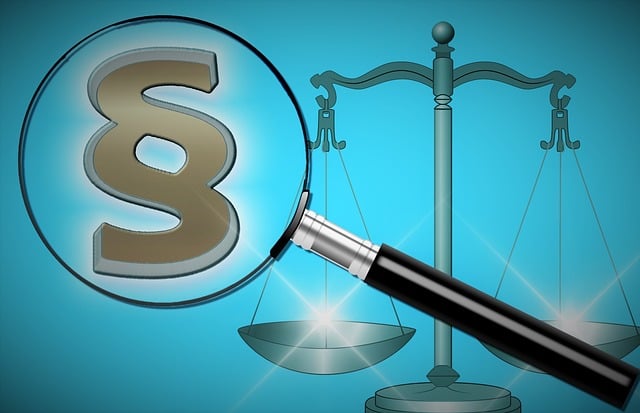Regulatory fraud laws maintain financial integrity and public trust through strict definitions of illegal acts, enhanced penalties, and robust investigations leading to successful prosecutions. Understanding Criminal Procedure Law Basics is crucial for navigating these cases, ensuring fairness and due process. From initial inquiries to trials, attorneys leverage legal frameworks to challenge evidence and witness testimonies, aiming for charge dismissals or plea bargains. Enforcement involves examining organizational actions against legal frameworks, while defense strategies scrutinize evidence inconsistencies and procedural errors, aiming for fair trials and favorable outcomes.
Navigating the complex landscape of regulatory fraud laws is essential for businesses and professionals to ensure compliance and avoid stringent penalties. This article serves as a comprehensive guide, delving into the key elements of these laws, providing insights into criminal procedure law basics, and exploring enforcing regulatory compliance. We also dissect common types of regulatory fraud offenses and offer strategies for defending against such charges, empowering readers with a solid understanding of this critical legal framework.
- Key Elements of Regulatory Fraud Laws
- Criminal Procedure Law Basics Explained
- Enforcing Regulatory Compliance: Legal Framework
- Common Types of Regulatory Fraud Offenses
- Defending Against Regulatory Fraud Charges
Key Elements of Regulatory Fraud Laws
Regulatory fraud laws are a critical component of any nation’s legal framework, designed to protect the integrity of financial markets and maintain public trust. Understanding criminal procedure law basics is essential when dissecting these laws, as they involve complex interactions between government agencies, corporations, and individuals. These laws target various fraudulent activities, such as insider trading, accounting fraud, and false reporting, which can have severe economic and social repercussions.
Key elements of regulatory fraud laws include strict definitions of illegal acts, enhanced penalties for offenders, and robust investigative procedures. An unprecedented track record of successful prosecutions demonstrates the effectiveness of these laws in holding wrongdoers accountable. By avoiding indictment, individuals and corporations can learn from past mistakes and implement more stringent internal controls to prevent future violations, thereby fostering a culture of transparency within the philanthropic and political communities.
Criminal Procedure Law Basics Explained
Understanding Criminal Procedure Law Basics is a critical step for anyone facing regulatory fraud charges. At its core, criminal procedure law outlines the rules and guidelines that govern how criminal cases are handled from the initial investigation to trial. This includes procedures for arrests, search warrants, grand jury proceedings, and trials, ensuring fairness and due process for all involved.
For those accused of white-collar crimes, these legal principles can be instrumental in achieving extraordinary results. Skilled attorneys specializing in regulatory fraud defense leverage their knowledge of criminal procedure to navigate the complexities of the law. By understanding the rules, they can challenge evidence, question witness testimonies, and work towards a complete dismissal of all charges if warranted.
Enforcing Regulatory Compliance: Legal Framework
Enforcing regulatory compliance is a complex process that relies heavily on the legal framework set forth by Understanding Criminal Procedure Law Basics. This involves a meticulous examination of an organization’s actions to ensure they adhere to relevant regulations. Authorities, such as the Securities and Exchange Commission (SEC) in the US, possess the power to investigate and prosecute entities accused of regulatory fraud. The legal process begins with an initial inquiry, where investigators gather evidence through subpoenas, interviews, and document production. If a violation is suspected, formal charges are filed, often leading to negotiations for plea bargains or, in severe cases, jury trials.
The general criminal defense strategy may include challenging the admissibility of evidence, questioning procedural errors, and arguing for a complete dismissal of all charges based on lack of intent or technicalities. Understanding these procedures is crucial for both regulatory bodies to ensure fair enforcement and defendants to protect their rights.
Common Types of Regulatory Fraud Offenses
Regulatory fraud offenses span a wide range of activities that manipulate or deceive regulatory bodies and authorities. Among the common types are false reporting, where businesses or individuals provide misleading financial statements or data to regulatory agencies; insider trading, which involves using non-public information for personal gain; and bid-rigging, where companies collude to fix bidding processes in public contracts. These offenses often involve complex schemes designed to evade detection, highlighting the crucial need for a robust Understanding Criminal Procedure Law Basics.
Legal professionals with an unprecedented track record in handling high-stakes cases understand the intricate web of regulations and the strategic approaches needed to combat regulatory fraud. They employ detailed investigations, meticulous documentation, and cutting-edge legal strategies to ensure that justice is served. In navigating these complex landscapes, their expertise is vital for both prosecuting fraudsters and defending clients who find themselves caught in regulatory crosshairs.
Defending Against Regulatory Fraud Charges
Defending against regulatory fraud charges requires a deep understanding of both criminal procedure law basics and the specific regulations at play. Across the country, white-collar defense attorneys specialize in navigating complex legal landscapes to protect their clients’ rights. They employ strategic tactics, such as thoroughly examining evidence for discrepancies or inconsistencies and challenging the prosecution’s case based on procedural errors or lack of intent.
A crucial aspect involves presenting a strong defense strategy tailored to the unique circumstances of each case. Experienced lawyers know how to leverage loopholes in regulations, highlight procedural shortcomings, and build reasonable doubt in the minds of juries or judges. By combining extensive legal knowledge with effective communication, they ensure their clients receive a fair trial, working tirelessly for the best possible outcome.
Understanding regulatory fraud laws is essential for both businesses and legal professionals. By grasping the key elements, enforcement mechanisms, and defense strategies outlined in this article—including a clear view of the criminal procedure law basics—individuals can better navigate the complex landscape of regulatory compliance. Staying informed about common types of offenses allows proactive measures to be taken, ensuring adherence to laws and avoiding potential charges. Ultimately, awareness and preparedness are key to mitigating risks associated with regulatory fraud.






